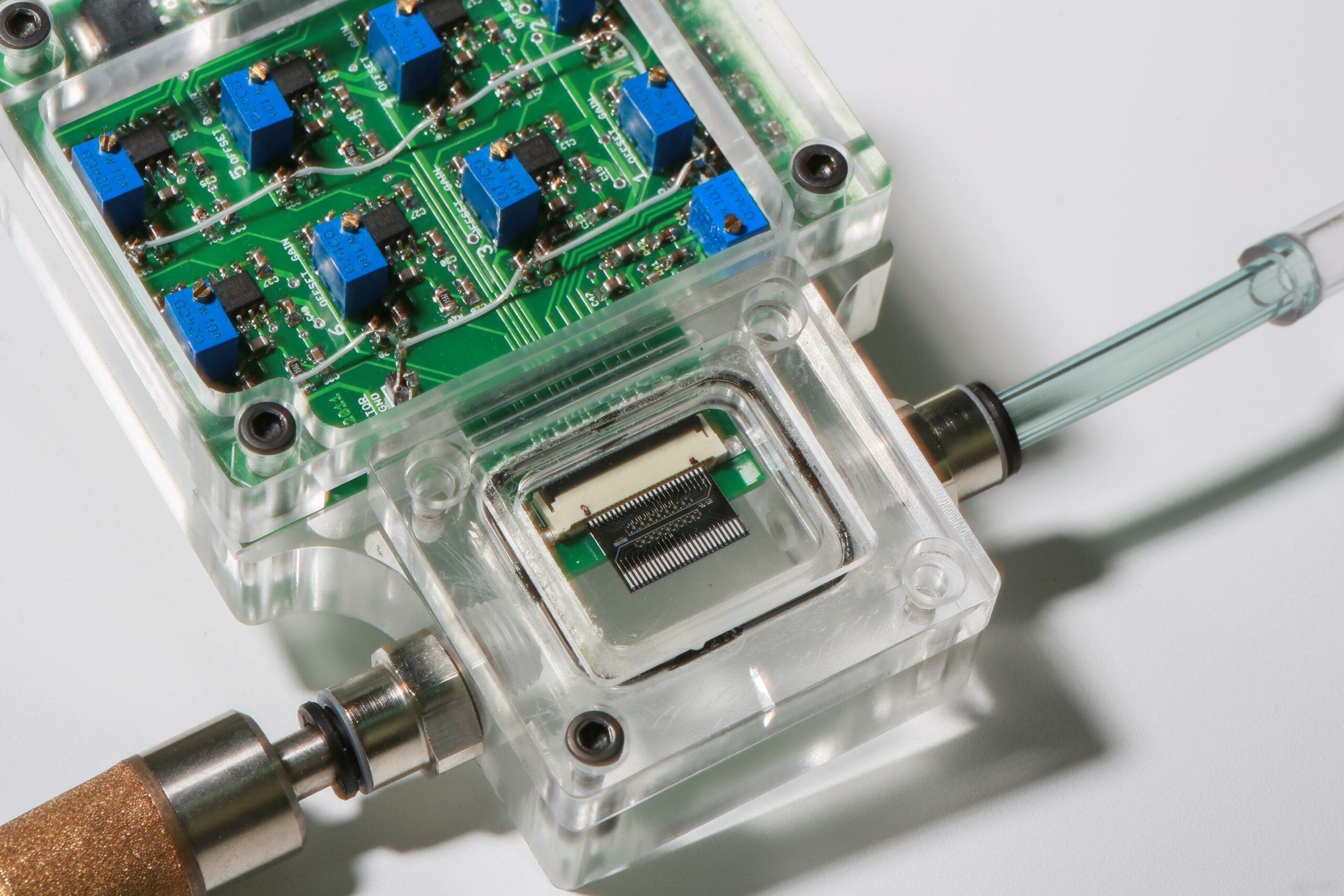EPFL researchers have developed a sensor that can identify the presence of a head and neck cancer through breath analysis.
Nico de Rooij‘s micro-sensors detect volatile organic compounds which vary in presence and concentration depending on one’s health.
The sensor includes a silicon disk covered by a polymer and suspended by four tiny “bridges” with integrated piezoresistors. When exposed to a gas, the polymer absorbs certain molecules and the disk changes shape. This deformation is detected by the piezoresistive bridges, which emit an electrical signal, determining the signature of the gas and its concentration. Different polymers must be used on each sensor to obtain an overview of the gas composition.
According to de Rooij, “There are already methods for detecting molecules called ‘electronic noses’ on the market. But they have a hard time analysing very complex gases like human breath, Humidity in particular can disrupt the reading, leading to false positives or false negatives.” The new sensors are extremely accurate.
Wearable Tech + Digital Health NYC 2015 – June 30 @ New York Academy of Sciences
